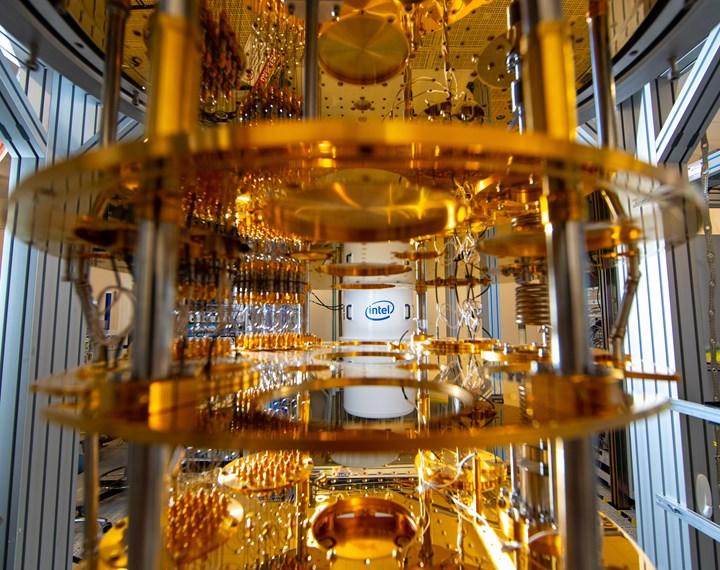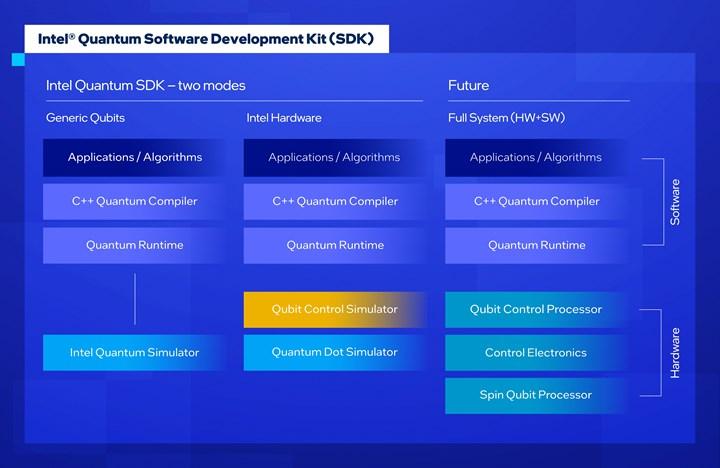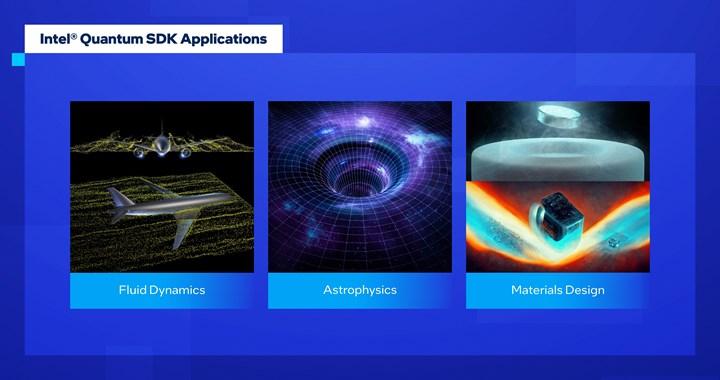 Customizable and expandable, the Intel Quantum SDK enables the co-design of Intel software and hardware. The SDK is a full quantum computer in simulation that can also interface with Intel’s quantum hardware, including Intel’s Horse Ridge II control chip and Intel’s quantum spin qubit chip due this year.
Customizable and expandable, the Intel Quantum SDK enables the co-design of Intel software and hardware. The SDK is a full quantum computer in simulation that can also interface with Intel’s quantum hardware, including Intel’s Horse Ridge II control chip and Intel’s quantum spin qubit chip due this year.Offers a customizable development environment
Intel Quantum SDK, which also allows developers to program quantum algorithms in simulation, offers an intuitive programming interface written in C++ using the industry standard low-level virtual machine (LLVM) compiler toolchain.
Preparation for future quantum computers
Anne Matsuura, Director of Quantum Applications and Architecture, Intel Labs; “Intel Quantum SDK helps programmers prepare for future large-scale commercial quantum computers. In addition to helping developers learn how to build quantum algorithms and applications in simulation, it will advance the industry by building a developer community that will accelerate the development of applications. they’ll be ready.” she said.
Intel Quantum SDK 1.0 released
 Featuring an intuitive programming interface based on C++, version 1.0 of the SDK provides a programming language familiar to classical computer developers, enabling collaboration between them and quantum developers. The kit also includes a quantum runtime environment optimized for execution of hybrid quantum-classical algorithms. Developers have a choice of two target backends to either simulate a larger number of generic qubits or simulate qubits to represent Intel hardware.
Featuring an intuitive programming interface based on C++, version 1.0 of the SDK provides a programming language familiar to classical computer developers, enabling collaboration between them and quantum developers. The kit also includes a quantum runtime environment optimized for execution of hybrid quantum-classical algorithms. Developers have a choice of two target backends to either simulate a larger number of generic qubits or simulate qubits to represent Intel hardware.The primary backend is Intel Quantum Simulator (IQS), a high-performance open source generic qubit simulator. IQS has a backend with a capacity of 32 qubits on a single node and more than 40 qubits on multiple nodes.
The second is a target backend that simulates Intel quantum dot qubit hardware and enables compact model simulation of Intel silicon spin qubits. Intel’s qubits leverage the company’s expertise in silicon transistor fabrication to build a large-scale quantum computer.
With the SDK, users can develop small workloads to determine what functions are needed in the system architecture of the quantum computer to run algorithms on qubits efficiently and accurately. In addition, Intel uses the SDK internally to co-design quantum hardware and software and accelerate system development.
 The SDK is a customizable and extensible platform that provides greater flexibility when developing quantum applications. It also allows users to see how well an algorithm is optimized in the compiler by comparing compiler files, a standard feature in classical computer development. It allows users to see source code and achieve lower levels of abstraction, giving them insight into how a system stores data.
The SDK is a customizable and extensible platform that provides greater flexibility when developing quantum applications. It also allows users to see how well an algorithm is optimized in the compiler by comparing compiler files, a standard feature in classical computer development. It allows users to see source code and achieve lower levels of abstraction, giving them insight into how a system stores data.- Coding in familiar patterns: Intel has extended the industry standard LLVM with quantum extensions and developed a modified quantum runtime environment for quantum computing, and IQS provides state vector simulation of a universal quantum computer.
- Efficient execution of hybrid classical-quantum workflows: Compiler extensions allow developers to integrate results from quantum algorithms into C++ projects, providing the feedback needed for hybrid quantum classical algorithms such as quantum approximation optimization algorithm (QAOA) and quantum variation eigen solver (VQE). It opens the door to cycles.
- High-performance simulation: Intel DevCloud users can create executables that can simulate applications and algorithms with up to 32 qubits on a single compute node and more than 40 qubits on multiple nodes.
How does Intel build a quantum ecosystem?
Remaining committed to advancing the field of quantum computing, Intel is working to build a developer community. As a starting point for this effort, Intel provided grants to five universities to develop quantum course curricula to share with other universities and expand their use in academia. These universities are; The University of Pennsylvania, Technische Hochschule Deggendorf, Keio University, The Ohio State University, and The Pennsylvania State University.
Deggendorf Institute of Technology is using the SDK to investigate a fluid dynamics problem important to aerodynamics and hydrodynamics. In January 2023, Intel held the Intel Quantum Computing Challenge at Deggendorf Institute of Technology. Participants explored quantum use cases such as image noise removal, realistic rendering, and solving unstructured search problems using the beta version of the Intel Quantum SDK. Leidos, another beta user; It explores various applications including quantum machine learning, materials simulation and astrophysics problems such as quantum teleportation, black holes and wormholes.
Downloadable from Intel Developer’s Cloud
Intel Quantum SDK 1.0 is currently available for download from the Intel Developer’s Cloud. Intel plans to release additional versions of the SDK with additional features in the future and will also seamlessly integrate the SDK into Intel’s quantum hardware.